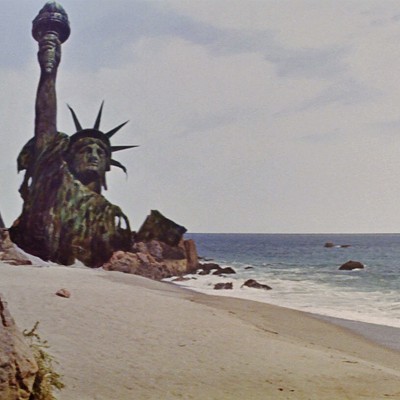So as we usher in a new year, I've resolved to become more politically active: I am going to stop picking up my dogs' shit.
I've been thinking about doing this for some time--mostly because I'm lazy--but also because it's the right ethical decision. At the dog park, massive amounts of doo-doos are sealed by conscientious persons via plastic grocery bags meticulously tied in knots. These bags, or doo-doo bombs, are then concentrated in garbage cans piled high with fast-food bags, soda cans, plastic packaging, more bagged doo-doo, more random junk, and on and on until the cans overflow. These semi-laminated stratigraphies of waste are every bit as awe-inspiring as they are compact, and on an anaerobic level, especially during the heat of a Sonoran summer day ... ewww, I don't even want to think about it. But, clearly, plastic-encased dog crap is not only everywhere, but underneath everything. The question becomes: How is all this shit ever going to biodegrade?
According to Alan Weisman, author of The World Without Us, it isn't. Plastic grocery bags, besides choking sea turtles who mistake them for jellyfish, are every bit as nasty as we ever thought they were, and probably worse. Oh, yeah, some of them might be photodegradable, meaning they could eventually fall apart in the sun, but when deprived of air and sunlight, plastic bags really do hang around for fucking ever. It follows that the contents therein must also.
Decades ago, plastic was relatively unheard of. Then a guy called Leo Baekeland, trying to come up with a new kind of shellac, mixed up a bunch of phenol with formaldehyde and invented Bakelite. He got rich, and we got telephones made of something other than wood, along with a bunch of kitschy shit that now sells for hundreds of dollars in antique shops down in Bisbee. The production and evolution of plastics ramped up during World War II, and by 1975, the National Academy of Sciences had estimated that oceangoing vessels alone dumped 8 million pounds per year of the stuff into the oceans. The world's commercial fleets by themselves dumped 639,000 plastic containers every day.
Then things went from bad to worse. As anyone who's ever bought a bargain brand of bottled water will tell you, some plastics do break down, but they never break down enough--polymers are long molecules--and all those broken bits of plastic containers eventually wind up in the food chain, consumed not just by sea turtles, but fish, crustaceans and even krill, tiny shrimp that feed everything, from whales to penguins to fish. The sad fact is, the majority of creatures in our oceans are now on diets heavily supplemented with what Weisman calls polymer crumbs. The extent of the damage that this modern dietary supplement is causing has yet to be measured. And when it is measured, I don't think I want to hear about it.
But back to plastic bags: They don't degrade in the landfills, and even if they manage to actually complete the trip from one end of a loggerhead to the other, they don't degrade in the oceans. Mostly, they wind up in circular aquatic garbage dumps called "gyres." The North Pacific Gyre, east of Japan and north of Hawaii, is bigger than the state of Texas and contains approximately 3 million tons of visible plastic. That's six times more plastic than there is krill in the same 1,000-mile area.
But enough about plastics. A much more environmentally friendly element comes out of a dog's ass: Dog shit, as far as I can tell, degrades fairly easily. Rain, wind, car tires, shoes, feet, hooves, skateboards--all these things are positively boffo and break it up into micro particles. After all, the stuff dogs eat is mostly organic (except in the case of my old dog Leroy, who once ate so much aluminum foil that it was extruded the next day in the form of a perfect silver turd) or at least relatively polymer-free: cornmeal, rice, animal byproducts, lamb, beef. All these things break down into reasonable-sized molecules that the environment can handle.
When you consider all this, what's the big deal about having to grab a tree branch and scrape a turd off your shoe?






